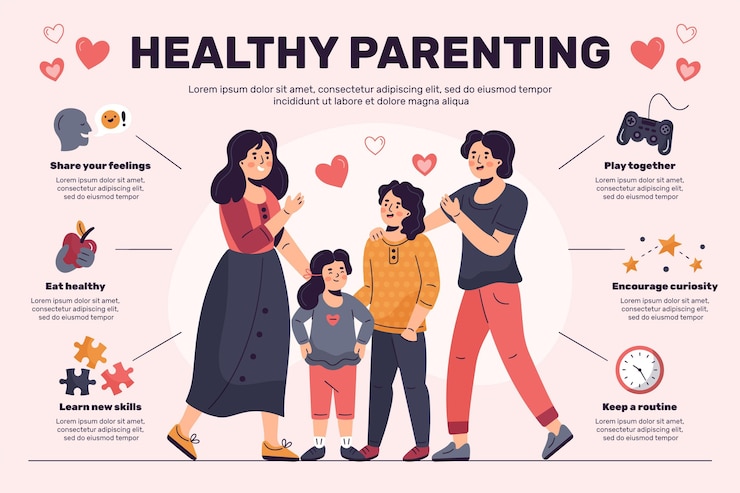
Inside: Discover the key positive parenting advice to encourage good behaviors in your child, and learn about common everyday obstacles that might interfere with this.
—
Table of Contents
After a late night baking heart-shaped cookies for my seven-year-old’s class, I faced an early morning packing lunches, finishing homework, and signing what felt like hundreds of school forms. Meanwhile, I couldn’t find a single pen when I needed one!
“Girls, it’s time to put on your boots and coats for school!”
Silence.
I finally discovered my oldest daughter hiding under her bed, her cheeks flushed with frustration: “I don’t want to go to school. I’m not going!”
What’s it going to take to get my kids to listen? That morning, I missed the most crucial tip in positive parenting.
Did you know that feeling relational discomfort in your brain is similar to experiencing physical pain? Strange, right? Relationships matter, especially the bond between parents and their children.
This parent-child relationship, often described in terms of attachment, reflects the quality of the connection in a child’s early years. Secure attachments help build a strong foundation for future relationships, making it easier for children to handle stress and reducing behavioral issues later on.
Decades of research emphasize the power of strong connections in early years. Fostering these bonds as children grow can be equally impactful.
That’s why a strong connection with your child is the most important positive parenting advice. If this relationship isn’t solid, it can affect a child’s development and behavior.
When children feel emotionally disconnected, they experience insecurity and misunderstanding. In contrast, connected kids feel seen, heard, and accepted—making discipline more effective.
A well-connected child is likely to view their parents as teammates and trust their guidance. This leads to cooperation and listening.
The best part? Discipline becomes easier. Children will naturally want to cooperate and treat their parents with respect because they are treated kindly, not because they are afraid or forced.
A sense of connection allows children to be their best selves. Amazing, right? These moments of connection are available daily. Being a positive parent means finding ways to make these connections happen regularly, and being aware of daily barriers.
**Technology**
You might be physically present, but not truly there. Amid family chaos, turning to your phone can provide temporary calmness. But this fleeting reward might result in kids running around wildly later on.
**Pressure of Extracurriculars**
Everyone’s child seems to be doing everything. While it might pressure us, children benefit more from free play and bonding with caregivers.
**Balancing Work and Family**
It’s tough to leave worries at the door. Children notice when our minds wander. Focusing on the present allows us to connect with our kids.
**Making Real Connections**
Engage with your child where they are, often during play. While fatigue might make it difficult, immersing in their world can create magical moments.
Amidst daily tasks like bedtime and school routines, we often go into auto-pilot, missing opportunities for connection. Special rituals like a handshake or morning prayers show your child they have your full attention.
Don’t wait for a perfect “quality time” window—it might never come. Opportunities to connect exist in everyday moments. Positive parenting techniques include eye contact, laughter, and touch. Sharing a joke or a spontaneous hug can mean a lot.
With only minutes before my daughter needed to catch the bus, I expertly set aside my tight schedule to empathize with her worries about being left out by a friend. After a while, she felt secure and ready to start her day.
Next time, I’ll remember the most significant positive parenting tip to improve my child’s behavior and prevent unnecessary stress. Even though she missed the bus, driving her to school was worth it for the connection we built.
—
### Other articles you might enjoy:
– 10 Traits of Exceptional Parents
– 5 Toxic Parenting Mindsets
– Parenting a Strong-Willed Child: The Ultimate Guide



